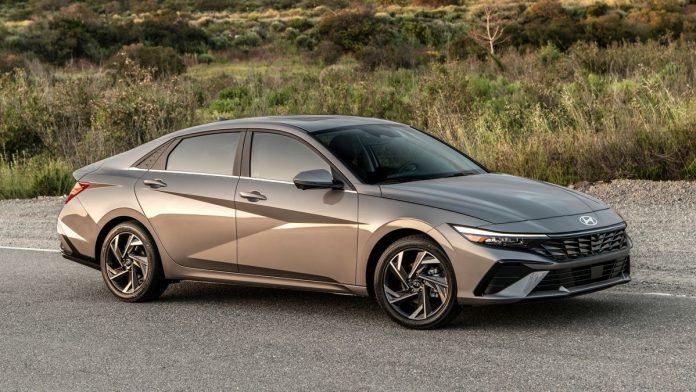In a gesture of transparency, I confess that I own one of Audi’s quickest sedans. The truth is that I’m biased toward sedans, sportbacks, and wagons. And, like other Audi owners, I have heard and read many Hyundai owners’ ‘It’s just like an Audi’ comments while also answering back, ‘No. No, it’s not.’ However, Hyundai may show it is much more intelligent than Audi and everyone else.
The Sedan Resurgence: Bucking the Trend
While Ford, Nissan, GM, Mitsubishi, and nearly everyone else seems to be getting rid of affordable sedans and hatchbacks, recent events show that Hyundai is doubling down. Are Hyundai planners seeing the coming demand for affordable vehicles?
Before you laugh, thinking that SUVs are here to stay, remember when everyone was buying minivans? And be honest, can you see yourself affording an average of $700 to $1,000 a month for a vehicle?
Hyundai Prioritizes Affordable Mobility
You might think Hyundai is crazy but think about this for one minute. Who among us has the inflation-sucking money to pay $50,000 or more for an average vehicle, much less an SUV? Millennials, Gen Z, and most of America outside of the ruling class need good gas-powered transportation that’s inexpensive, economical, and can carry four people and some stuff on a weekend getaway. Is that too much to ask? Hyundai doesn’t think so.
Hyundai Motor North America CEO Jose Muñoz said increasing production of the recently redesigned Sonata and Elantra is a “key factor for profitability” in 2024 [because they’re not going to profit from EVs, I might add].
A Shift in Focus: Value Over Extravagance
While speaking with Automotive News, Muñoz said, “We are not trying to overproduce, but we’re losing some sales because the dealers don’t have the trims, the versions, that they would like to, so we’re very mindful of that,” he said. With higher interest rates, customers are looking for less expensive vehicles.
And everyone said, “Amen.” But what are most OEMs doing? Producing $120,000 pickups, $80,000 SUVs, and hyper-expensive EVs that are expensive to charge. It’s like the industry has taken crazy pills and thinks money grows on trees. And maybe it does for them.
Hyundai Commits to Practicality and Affordability
Hyundai’s commitment to sedans like the Sonata and Elantra is not just about filling a niche; it’s a strategic move to capture a market segment that other automakers increasingly overlook. As the industry shifts its focus to larger, more expensive vehicles, Hyundai is positioning itself as a champion of affordability and practicality.
This approach is not only intelligent; it’s timely. With the skyrocketing cost of living and economic uncertainty looming, more consumers are looking for value without compromising quality or style. Hyundai’s sedans offer just that—a blend of modern design, advanced technology, and fuel efficiency at a price point accessible to a broader range of buyers.
Building Brand Loyalty: Investing in the Future
Moreover, Hyundai’s strategy could also be a long-term investment in brand loyalty. By providing affordable and reliable options for first-time car buyers or those on a budget, Hyundai is building a relationship with a demographic that could upgrade to higher-end models or stick with the brand as their financial situation improves.
The automotive industry is chasing the latest trends and luxury markets, so Hyundai’s focus on sedans is a refreshing reminder that there’s still a place for simplicity and sensibility. It’s a bold move that might pay off handsomely in an increasingly unpredictable market. And then we’ll see whatever’s left of the other OEMs trying to catch up.
Hyundai’s Identity: Unique and Accessible
As for the comparisons to Audi and other luxury brands, it’s clear that Hyundai is carving out its own identity. While inspired by the best, Hyundai is not trying to be a carbon copy of anyone. Instead, it’s focusing on what it does best—providing reliable, stylish, and affordable vehicles for the everyday driver.
While Audi might still hold a special place in my heart, I can’t help but admire Hyundai’s approach. In a world where bigger is beginning to be given the side-eye, and more expensive doesn’t always mean more value, Hyundai is proving that sometimes, less is more. And in today’s economy, that’s a message worth listening to.




